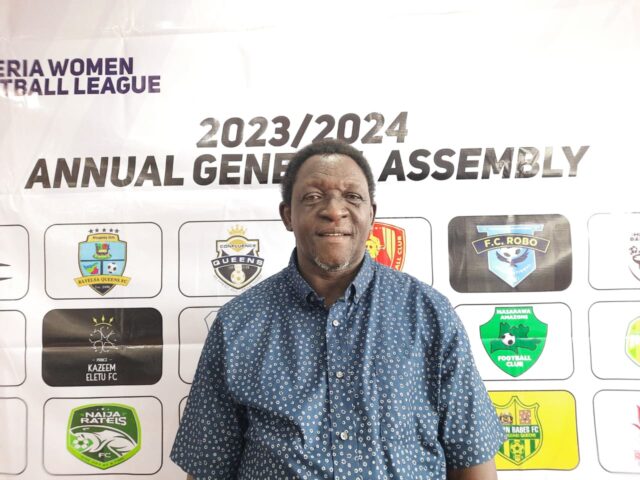Nagogo Moses Bako, a passionate advocate for Women’s football, shed light on the challenges faced by female football in Nigeria at the NWFL Annual General Assembly.
Read Also: Honourable Minister of Sports Development Visits Nigeria Sports Hall of Fame
He expressed his belief that Women’s football has yet to receive the recognition and support it deserves, even as Nigeria celebrates its 63rd year of independence.
“I think it has not gotten enough. If what is given to the men, women’s football gets half of it, they would do better. People would come to enjoy female football more than it is now.”
He highlighted the emergence of female teams in various states especially the North, breaking the misconception that only a few prominent teams existed.
Nagogo Moses Bako emphasized the need for gradual growth and cited CAF rules that require teams qualifying for the Champions League to have a female team.
“Women’s football is going to continue to grow and with what we have seen with the NWFL program here, with the unveiling of all the initiatives, there is a plan for 1 million people talking about female football, one day we will get there,” Bako remarked during an exclusive interview with Sports247.
When asked about the ideal age for girls to start playing football, Bako recommended introducing them to the sport as early as 4-6 years old. He stressed the importance of catching their interest at a young age.
Other News: Ogun Government Seeks Partnership With US To Develop Critical Sectors
Regarding grassroots football, he discussed the challenges faced by young female players, including inadequate amenities, hygiene concerns, and issues of sexual harassment and abuse.
Bako called for proper welfare and the establishment of a regulatory body by the FA in various states to address these challenges and protect the well-being of female players.
In conclusion, Bako emphasized the need for guidance, education, and orientation for young female players to empower them to defend themselves and invest in their well-being.
While challenges may persist, consistent efforts can lead to significant improvements in the management of these issues.









